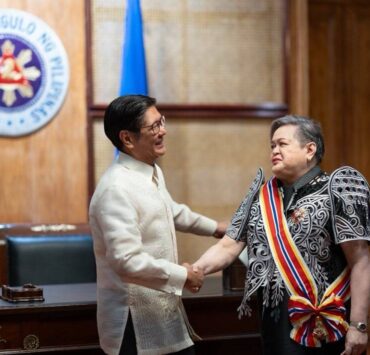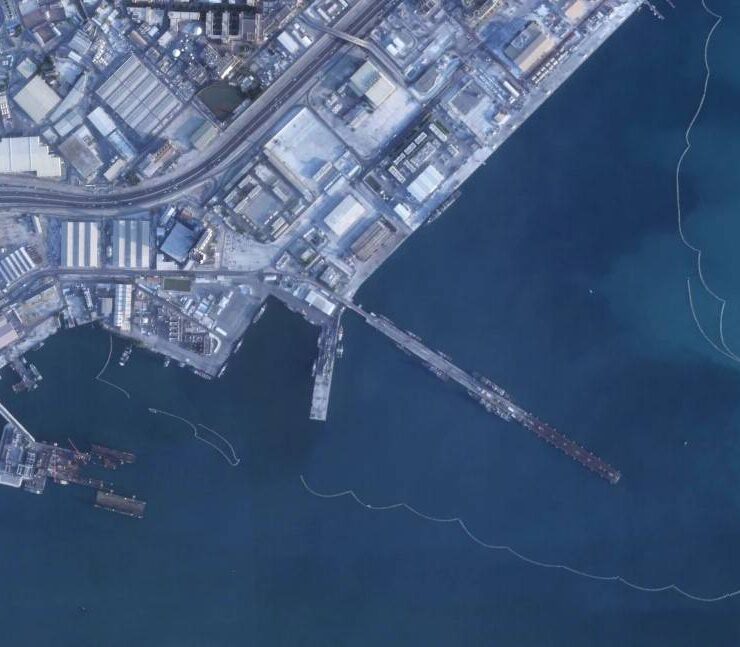China vents ire on former PH senator via travel ban

The Chinese government on Tuesday said it was imposing sanctions on a former Philippine senator over his “egregious conduct” on issues concerning Beijing, a state action taken for the first time against a specific critic in Manila.
For Sen. Francis Tolentino, China’s decision to ban him from entering the Chinese mainland and its territories Hong Kong and Macao was “a badge of honor” he earned for defending the rights, dignity and sovereignty of the Filipino people in the West Philippine Sea.
“For quite some time, driven by selfish interests, a handful of anti-China politicians in the Philippines have made malicious remarks and moves on issues related to China that are detrimental to China’s interests and China-Philippines relations,” read the statement posted on the website of the Chinese Ministry of Foreign Affairs.
The ministry stressed that the Chinese government was “firmly resolved to defend national sovereignty, security, and development interests.”
Tolentino earlier served as Senate majority floor leader and chair of a special committee on maritime and admiralty zones. He authored two bills which marked out Manila’s territorial claims in the South China Sea—the Philippine Maritime Zones Act (Republic Act No. 12064) and the Philippine Archipelagic Sea Lanes Act (RA 12065).
The bills, later signed into law in November last year, reaffirmed the extent of the country’s maritime territories in the South China Sea and its right to tap resources in these areas.
President Marcos earlier described them as “significant laws that emphasize the importance of our maritime and archipelagic identity.”
The passage of the laws, however, drew immediate condemnation and dismissal of their legitimacy from China, which claims virtually all of the South China Sea.
In a statement, Tolentino said “I have fought—and will continue to fight—for what rightfully belongs to our nation. I stand firmly with the Philippine Navy, the Philippine Coast Guard, and our brave fishermen who depend on these waters for their livelihood.”
“No foreign power can silence me or weaken my resolve to uphold our sovereignty,” said Tolentino, who lost his reelection bid in the May 12 polls under the administration-backed ticket Alyansa Para sa Bagong Pilipinas.
Troll farm exposé
The sanctions came about two months after Tolentino also exposed troll farm operations allegedly funded by the Chinese Embassy and aimed at discrediting the Philippine government and certain personalities critical of Beijing.
At a hearing conducted by his Senate committee in April regarding alleged espionage operations and underwater drones that had been found in different parts of the country, Tolentino presented what he claimed were evidence linking the Chinese Embassy to troll farms.
He cited an August 2023 service agreement between the embassy and InfinitUs Marketing Solutions Inc. for the provision of “keyboard warriors that will play a vital role in the overall effectiveness of the issue management project.”
“They had an agreement. InfinitUs’ job is to provide keyboard warriors… probably these keyboard warriors were our fellow Filipinos,” he then said. “This is is not a simple contract. This contract and payment is the destruction of the dignity of the Filipino, the stomping on the dignity of the Philippines.’’
Within Senate mandate
Sen. Jinggoy Estrada on Tuesday came to Tolentino’s defense, saying the latter was well within his mandate when he pushed for the two landmark bills.
“Since when has crafting legislation that asserts our sovereign rights been considered egregious conduct? His actions were fully aligned with our democratic processes and legal frameworks,” said Estrada.
He noted that for years, despite the 2016 arbitral ruling that favored Philippine claims over portions of the West Philippine Sea, China continued to “bully, harass, and subject our maritime scientists, personnel, and fisherfolk to inhumane and provocative actions.”
“It is appalling that efforts to defend our territorial claims are now being branded as ‘egregious conduct.’ China should be ashamed,” he said. “Critical voices are not threats to diplomacy; they are expressions of patriotic duty.”
Estrada called on the Department of Foreign Affairs (DFA) to summon the Chinese ambassador to the Philippines, Huang Xilian, regarding the sanctions and to formally express the government’s strong displeasure.
“Will they now impose the same sanctions on our President for signing [the Tolentino bills] into law?” Estrada asked.
Same fate
In a statement, the DFA said it had “noted the measures imposed by China on a Filipino national.”
“While these measures are legally within China’s prerogative, they are not conducive to mutual efforts to restore mutual trust and improve bilateral relations,” it said.
Beijing had sanctioned officials of another country on several occasions, including American lawmakers, White House officials under President Donald Trump, and company executives.
In July 2024, United States Rep. Jim McGovern of Massachusetts was sanctioned for “frequently interfering” in China’s domestic affairs, particularly on the issue of human rights.
The sanctions against him were considered symbolic, since McGovern had no assets or business dealings in China.
In May 2024, Michael Gallagher, a former Republican member of Congress from Wisconsin, was also sanctioned over his support for Taiwan, a self-governed democracy that China claims as part of its territory.
Gallagher, who stepped down in April 2024, led the House pushback against the Chinese government, including helping to pass a bill that could ban the popular video app TikTok if its China-based owner doesn’t sell its stake.
In April 2023, China also sanctioned Texas Rep. Michael McCaul, then chair of the House foreign affairs committee, for his visit to Taiwan, saying he violated the “One China” policy.
McGovern and McCaul, along with two senators, in 2023 introduced bicameral legislation calling for stronger US support for Tibet, a region in China where human rights groups have criticized authorities for the treatment of ethnic Tibetans. —WITH REPORTS FROM GILLIAN VILLANUEVA, INQUIRER RESEARCH AND AP





















